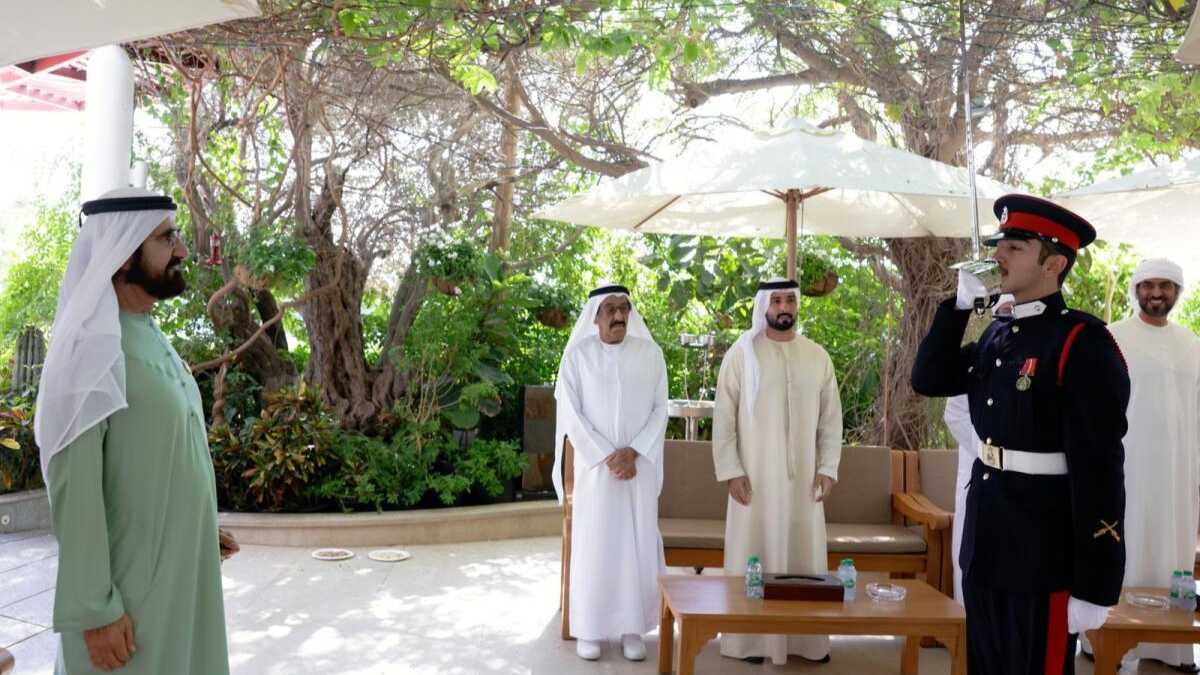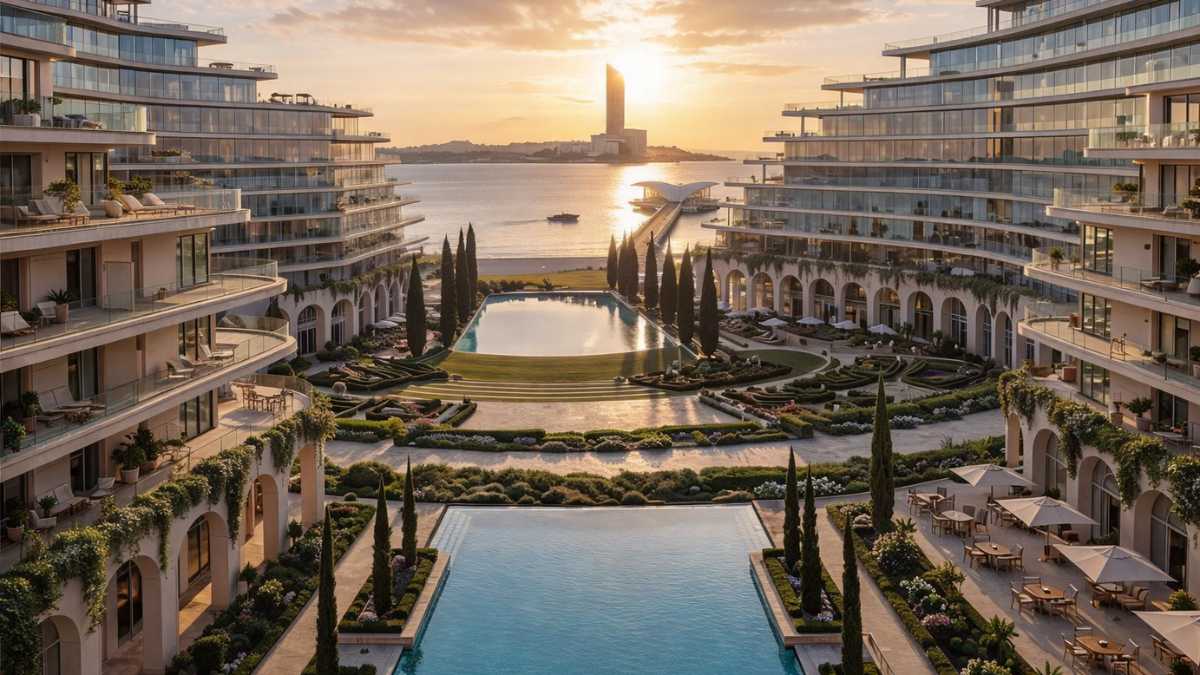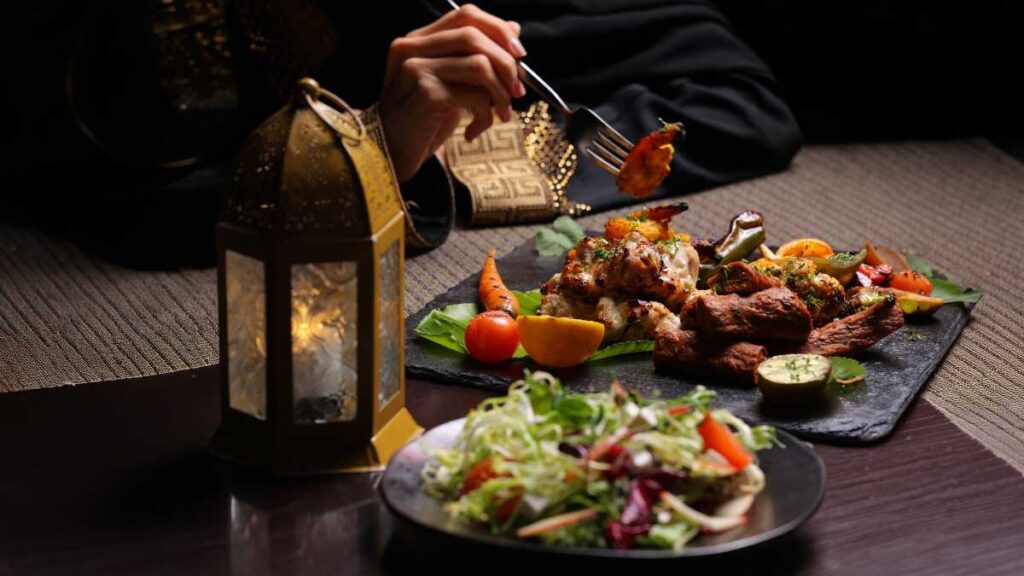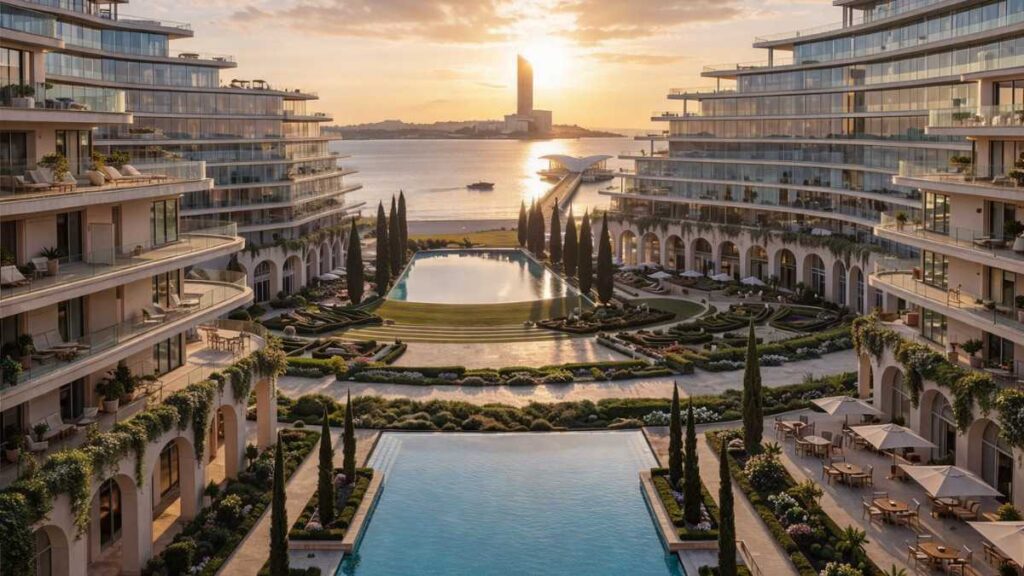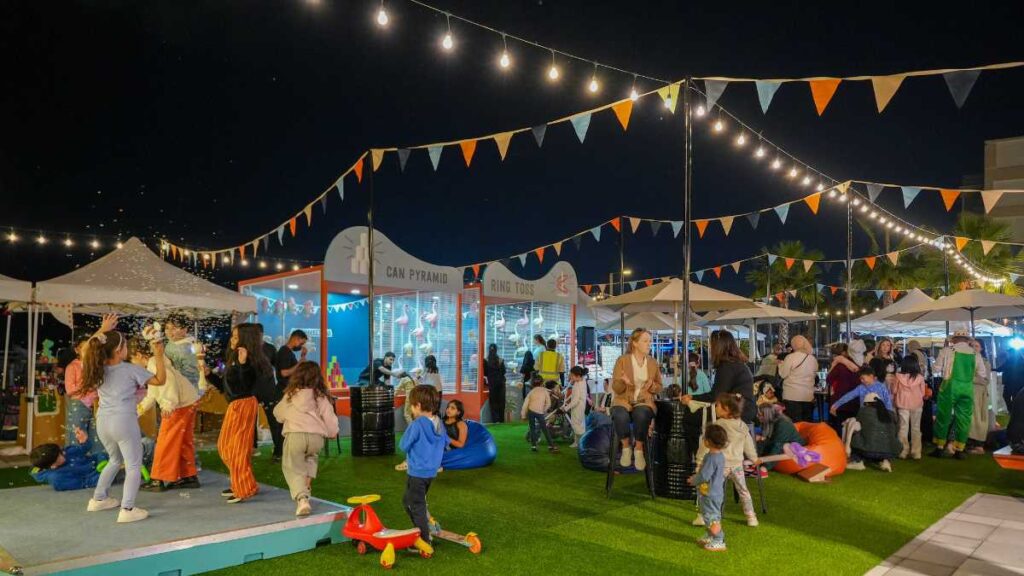Saqr 2.0, a groundbreaking maritime project in Ras Al Khaimah (RAK), is set to revolutionize the logistics, shipbuilding, and free zone industries. Scheduled for completion by 2027, the port will feature deep-water berths, a sprawling 8-million-sqm free zone, and a state-of-the-art green ship recycling facility, placing it at the forefront of sustainable maritime practices and global trade connectivity.
Deep-Water Berths to Accommodate Global Trade
The deep-water berths at Saqr 2.0 will include depths of up to 18 meters, enabling the port to accommodate Capesized Vessels, some of the largest cargo ships in the world. This capability positions Saqr 2.0 as a vital hub for international trade, facilitating the smooth flow of bulk commodities, cargo, and industrial goods across global supply chains.
The infrastructure is strategically designed to meet the rising demand for efficient maritime transport and to provide industries reliant on maritime logistics with unparalleled access to world-class facilities.
A Sustainable Ship Recycling Facility: Leading the Region
At the heart of Saqr 2.0’s innovation lies its green ship recycling facility, a first-of-its-kind initiative in the region. This eco-friendly facility aims to deliver environmentally sustainable solutions for dismantling and recycling large vessels. By adopting globally compliant green practices, the facility will mitigate the harmful environmental impacts associated with traditional shipbreaking.
RAK Ports’ CEO Roy Cummins emphasized the project’s significance, stating:
“We aim to lead the way in sustainable ship recycling, aligning with global environmental priorities and setting an example for the region.”
This initiative not only highlights Ras Al Khaimah’s commitment to environmental stewardship but also supports the global maritime industry’s shift towards sustainability.
RAK Maritime City Free Zone: An Unparalleled Opportunity
Spanning over 8 million square meters of prime waterfront land, the RAK Maritime City Free Zone offers a compelling value proposition for businesses. The free zone has been meticulously planned to cater to industries that depend on maritime supply chains, providing:
- Direct access to deep-water berths
- Advanced warehousing and logistics facilities
- Value-added services to support industrial operations
The expansive infrastructure of the free zone positions it as a critical player in the Middle East’s economic diversification and industrial growth.
Supporting RAK Ports’ Diversification Strategy
Saqr 2.0 aligns with RAK Ports’ diversification strategy, expanding beyond traditional port services. New focus areas include:
- Luxury yacht maintenance and repairs
- Advanced warehousing solutions for modern logistics
- Support for large-scale infrastructure projects
The relocation of Al-Jazeera shipyard to Saqr 2.0 will further consolidate and centralize ship repair and recycling operations, enhancing efficiency and expanding capabilities.
Additionally, discussions with RAK Gas and other partners highlight Saqr 2.0’s readiness to embrace alternative energy sources and new fuel types. This adaptability makes the port future-proof and reinforces its role in promoting sustainable energy solutions for maritime transport.
Modernization of Existing RAK Ports Facilities
In parallel with the development of Saqr 2.0, RAK Ports is modernizing its existing facilities to enhance efficiency and support global trade. These include:
- Saqr Port: The region’s largest bulk port, handling substantial cargo volumes annually.
- Ras Al Khaimah Port: A key hub for general cargo and warehousing.
- Al-Jeer Port: Specializes in livestock handling, ensuring compliance with international safety standards.
- Al Jazeera Port: A mid-sized shipyard offering ship repairs and warehousing services.
This modernization initiative underscores RAK Ports’ vision to strengthen its global competitiveness and operational capacity.
Strategic Location for Global Connectivity
Ras Al Khaimah’s strategic position in the Middle East provides Saqr 2.0 with a unique advantage as a global connectivity hub. Its proximity to key shipping routes ensures faster and more efficient access to markets in Asia, Europe, and Africa. This central location makes the port a preferred choice for businesses seeking to optimize their supply chain efficiency.
Economic Impact and Business Opportunities
The development of Saqr 2.0 is expected to drive significant economic growth for Ras Al Khaimah, creating opportunities for businesses, investors, and industries. Key benefits include:
- Job creation across multiple sectors
- Attracting foreign investments in logistics, shipbuilding, and advanced industries
- Strengthening Ras Al Khaimah’s position as a regional and global maritime hub
Cummins called RAK Ports a “hidden gem”, highlighting the immense potential for growth:
“We’re not just operating ports; we’re enabling global supply chains.”
Saqr 2.0’s transformative infrastructure will ensure that Ras Al Khaimah remains at the forefront of maritime innovation and economic development.
Innovation in Logistics and Industrial Solutions
The combination of advanced warehousing, logistics support, and access to deep-water berths at Saqr 2.0 presents businesses with a comprehensive platform to optimize their global operations. Industries requiring seamless integration of supply chain management will find unparalleled efficiency and value in Saqr 2.0’s infrastructure.
A Future-Ready Maritime Ecosystem
The development of Saqr 2.0 reflects Ras Al Khaimah’s broader vision to build a sustainable, future-ready maritime ecosystem. By integrating green technology, advanced logistics, and deep-water capabilities, the port will set new benchmarks for:
- Operational efficiency
- Environmental sustainability
- Global trade facilitation
This project not only enhances Ras Al Khaimah’s economic diversification goals but also contributes to the region’s long-term sustainable growth.
Conclusion
Saqr 2.0 is poised to transform Ras Al Khaimah’s maritime landscape, offering unparalleled opportunities for businesses, investors, and industries. With its deep-water berths, eco-friendly ship recycling facility, and expansive free zone infrastructure, Saqr 2.0 will play a pivotal role in shaping the future of global maritime trade.
As the project nears completion, Ras Al Khaimah solidifies its position as a leader in maritime innovation, sustainability, and global connectivity.

